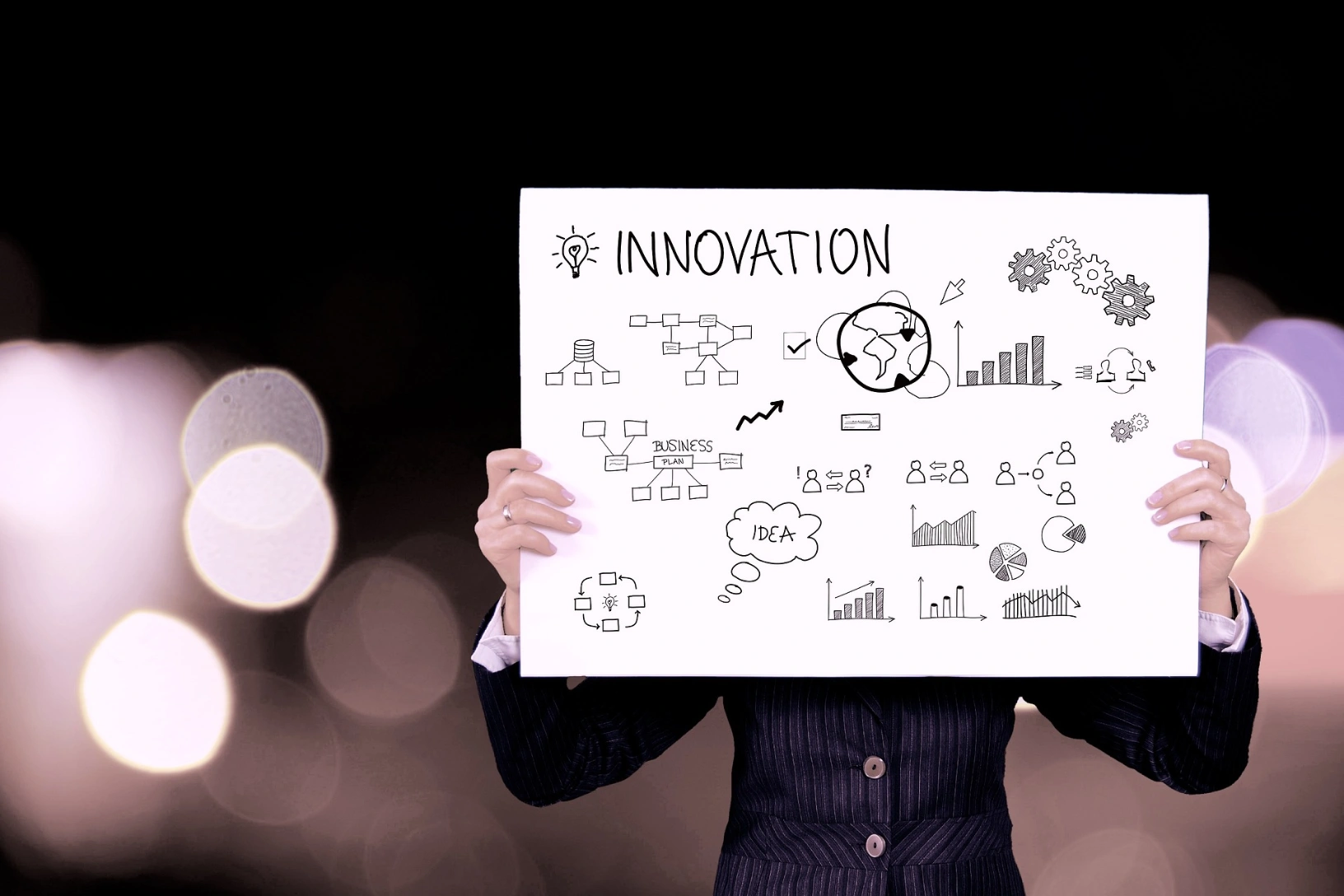As we move closer to 2025, the business landscape continues to evolve rapidly. Global economic shifts, technological advancements, changing consumer preferences, and the increasing importance of sustainability are just a few of the forces shaping the future of business. Staying ahead of these trends is crucial for companies that want to thrive in a competitive marketplace. In this article, we’ll explore 16 key business trends that are expected to shape the next few years, offering insights into how businesses can prepare and capitalize on these changes.
- AI and Automation Continue to Revolutionize Business Operations
Artificial intelligence (AI) and automation have already made their mark, but by 2025, these technologies will become even more ingrained in business operations. From automating routine tasks to enhancing decision-making processes with machine learning, AI is expected to take over a greater share of business functions. Companies will increasingly use AI for customer service, data analysis, inventory management, marketing automation, and even product development.
To stay ahead, businesses must invest in AI tools that streamline operations, improve customer experiences, and reduce overhead costs. Integrating AI into core business functions will not only increase efficiency but also enhance innovation and provide a competitive edge.
- Sustainability Becomes a Core Business Pillar
Sustainability is not just a trend anymore; it is an essential aspect of modern business strategy. By 2025, consumers, investors, and employees will demand more responsible practices from companies, pushing sustainability to the forefront. From reducing carbon footprints to ethical sourcing and waste management, businesses will need to integrate sustainability into every aspect of their operations.
For companies to stay ahead, they must focus on making sustainability a part of their core values. Adopting green technologies, offering eco-friendly products, and promoting a circular economy will not only meet regulatory expectations but also attract eco-conscious consumers and investors.
- The Gig Economy Grows Stronger
The gig economy, which saw a massive expansion in the last decade, will continue to grow in 2025. More companies will turn to freelancers, consultants, and contract workers to meet their staffing needs. The flexibility of hiring independent talent allows businesses to access specialized skills while reducing costs associated with full-time employees.
To stay ahead of this trend, businesses should embrace flexible workforce models, including hiring freelancers for specific projects and tapping into talent from around the world. Investing in platforms that connect businesses with qualified gig workers will be essential for companies looking to scale quickly and efficiently.
- Remote and Hybrid Work Models Solidify
Remote work is no longer a temporary adjustment; it has become a permanent feature of the modern workplace. By 2025, many companies will have fully embraced hybrid and remote work models. Businesses will continue to adjust their processes to accommodate employees working from various locations, leveraging tools for virtual collaboration, project management, and communication.
To stay ahead, companies need to invest in robust remote work infrastructures, such as cloud-based systems, cybersecurity protocols, and employee engagement initiatives. Building a culture that supports remote and hybrid work will be essential to retaining top talent and ensuring productivity.
- The Rise of Digital Transformation in Traditional Industries
Digital transformation will expand beyond the tech industry and affect traditional sectors such as manufacturing, healthcare, and logistics. By 2025, industries that have been slow to adopt digital technologies will see a significant push toward modernization. This could include adopting cloud-based solutions, utilizing the Internet of Things (IoT), implementing blockchain, and improving data analytics.
Businesses in traditional sectors must prioritize digital transformation to stay competitive. This includes integrating technology into operations, investing in employee training, and leveraging digital tools to enhance customer experiences and streamline processes.
- Personalization and Customer-Centricity Take Center Stage
Consumers in 2025 will expect more personalized experiences from brands, whether it’s through personalized recommendations, custom-tailored products, or one-on-one customer service. The use of AI, big data, and customer analytics will allow businesses to offer a high degree of personalization, increasing customer satisfaction and loyalty.
For companies to stay ahead, they must invest in tools that enable personalized marketing, customer support, and product offerings. Creating a customer-first culture and using data to understand consumer preferences will help businesses stand out in an increasingly crowded marketplace.
- Cryptocurrency and Blockchain Technology Gain Ground
Cryptocurrency and blockchain technology are poised to become more mainstream by 2025. With the increasing interest in decentralized finance (DeFi), businesses in various sectors, from banking to supply chain management, will begin to integrate blockchain solutions into their operations.
Companies that want to stay ahead in this space should explore how blockchain can enhance transparency, security, and efficiency in their operations. Whether it’s for payments, contracts, or data management, adopting blockchain technology will help businesses remain competitive in an increasingly digital world.
- The Growth of Subscription-Based Business Models
The subscription-based business model is becoming a dominant trend across industries, from entertainment and software to health and wellness. Consumers enjoy the convenience of subscriptions, and businesses benefit from predictable revenue streams and improved customer retention.
By 2025, many businesses will adopt subscription models, even in industries where they weren’t traditionally used. Companies can stay ahead by exploring the potential of subscriptions, offering flexible pricing, and building loyalty programs that keep customers engaged over the long term.
- The Expanding Role of 5G Technology
The rollout of 5G technology is set to revolutionize how businesses operate. With faster speeds, lower latency, and greater connectivity, 5G will enhance communication, improve data transfer, and unlock new opportunities for industries such as telecommunications, healthcare, and transportation.
To stay ahead, businesses will need to invest in 5G infrastructure and explore how this technology can improve customer experiences, enable real-time data analytics, and create new products or services. Industries that adopt 5G early on will have a significant advantage over competitors that lag.
- E-commerce Continues to Evolve
E-commerce has seen tremendous growth in recent years, and by 2025, the industry will continue to evolve with new technologies and innovations. The rise of social commerce, voice shopping, and AI-driven shopping assistants will further transform the way consumers shop online.
To stay ahead of the e-commerce curve, businesses must embrace emerging technologies and platforms, creating seamless, personalized online shopping experiences. Investing in voice-enabled shopping, AI-based recommendation engines, and interactive product displays will be key to staying competitive in 2025.
- The Influence of Virtual Reality (VR) and Augmented Reality (AR)
Virtual and augmented reality technologies are no longer just the domain of gaming. By 2025, VR and AR will be more widely adopted by businesses to enhance customer experiences, provide training solutions, and develop innovative products. Industries such as real estate, retail, healthcare, and education will use VR and AR to create immersive experiences for customers and employees alike.
Businesses must explore how these technologies can be integrated into their offerings, whether it’s providing virtual product demonstrations, immersive training programs, or virtual events. Early adoption of VR and AR will help businesses differentiate themselves and build stronger connections with customers.
- AI-Powered Cybersecurity
As businesses rely more on digital systems and processes, the threat of cyberattacks grows. By 2025, AI-powered cybersecurity tools will become essential for protecting sensitive data and ensuring business continuity. AI can help identify and respond to threats in real time, providing a proactive defense against increasingly sophisticated cyberattacks.
To stay ahead, companies should invest in AI-driven cybersecurity solutions that can detect vulnerabilities, prevent breaches, and respond quickly to threats. This will not only protect valuable data but also build trust with customers who are increasingly concerned about data security.
- The Importance of Employee Well-being and Mental Health
In 2025, employee well-being and mental health will be a top priority for businesses. With the ongoing changes in work environments, there is growing recognition of the need to support employees’ emotional and mental health. Companies that invest in wellness programs, flexible work schedules, and mental health support will attract and retain top talent.
To stay ahead, businesses should create a culture of well-being that includes access to mental health resources, support for work-life balance, and a focus on employee engagement. Promoting a positive workplace environment will be crucial for productivity, retention, and overall company success.
- The Influence of Voice Search and Smart Devices
As voice search and smart devices become more integrated into daily life, businesses will need to optimize their online presence for voice search queries. By 2025, voice search will account for a significant portion of online searches, making it essential for businesses to adapt their content for voice-based interaction.
To stay ahead, companies should optimize their websites for voice search, focusing on conversational keywords and providing information in formats that are easy to access through voice commands. This will help businesses reach customers through emerging voice technologies and smart devices.
- Global Supply Chain Innovation
Global supply chains will continue to evolve in 2025, with a focus on resilience, efficiency, and sustainability. Businesses will increasingly rely on advanced technologies like AI, blockchain, and IoT to track shipments, reduce delays, and improve transparency across the supply chain.
To stay ahead, businesses should invest in technologies that enhance supply chain visibility, improve logistics, and reduce costs. Companies that adapt to these innovations will be better equipped to manage disruptions and meet consumer demands more efficiently.
- The Growing Importance of Data Privacy
Data privacy will remain a critical concern for consumers, especially as businesses collect more personal data. By 2025, companies will face increasing scrutiny and regulation regarding how they collect, store, and use consumer data. Businesses that prioritize data privacy and are transparent about their data practices will build trust and loyalty with customers.
To stay ahead, companies must comply with evolving data privacy regulations, implement strong data protection measures, and ensure that customers have control over their personal information. A strong focus on data
privacy will differentiate companies as trusted, responsible entities.
How to Stay Ahead in 2025
The business world is undergoing rapid transformation, and staying ahead in 2025 will require adaptability, innovation, and foresight. By embracing emerging technologies, understanding shifting consumer preferences, and prioritizing sustainability and employee well-being, businesses can position themselves for success in the evolving marketplace.
Incorporating these trends into your business strategy today will not only ensure that you’re prepared for the future but also help you maintain a competitive edge as new opportunities and challenges arise. The businesses that thrive in 2025 will be those that can successfully navigate these trends and continuously evolve to meet the demands of an ever-changing world.





